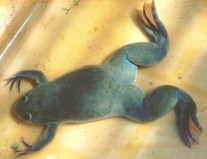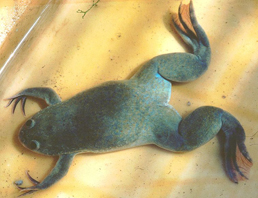Podcast for 8 April 2011
Football and family violence, rooting out insects, a question of taste, and a bird's eye view for danger.


Football and family violence, rooting out insects, a question of taste, and a bird's eye view for danger.

A new generation of self-conscious robots, how sunshine affects drugs in the body, new research into the prevention of cleft lips, why it's hard to stay focused for long periods of time, and what sound recordings can tell us about the health of natural habitats.


Regional dialects in gibbons, a squid attack pheromone, bats and carnivorous plants, and why frogs are slimy.
The immune systems of chronically lonely people switch from fighting viruses to fighting bacterial infections.

The surprising way the brain processes Braille, bilingualism staves off dementia, and new research on stuttering. Also: why being lonely could change how your immune system works, and the relationship between popularity and bullying.
The discovery of a female pterodactyl with an egg in China is making paleontologists take a second look at old fossil collections.
ANIMAL STORIES: An Australian bird benefits when its predator sings, what happens when bees get sleepy, the invasion of the giant fish, eating insects to slow global warming, and a female pterodactyl fossil is discovered in China.
Scientists are using DNA to track the invasion of Asian carp in the United States.
Brain development in the first year of a baby's life set us apart from our extinct Neanderthal relatives.
In the Kalahari desert, a gangster-like bird provides protection to other birds, but at a high price.
Sterilized male mosquitoes are part of a grand experiment in biocontrol on Grand Cayman Island.
A toxic plant used in a traditional religious ritual is shaping the evolution of a Mexican cavefish.
Bacterial poison darts, a new approach to cancer research, turning skin into blood, depressing night-lights and the differences between human and Neanderthal brains.
Boa constrictors are the latest addition to the list of vertebrate species in which parthenogensis, or asexual reproduction, has been documented.
A small minority of people can fight the HIV virus with their own immune systems. A new study identifies just a few genetic differences that set them apart from those for who the disease has progressed.
A genetic explanation for why some people with the HIV virus never develop symptoms, how the shape of the genome influences how genes work, and a religious practice that's shaping the evolution of a Mexican fish. Also: cloud seeding gets a failing grade, and why replacing native plants with crops accelerates climate change.
